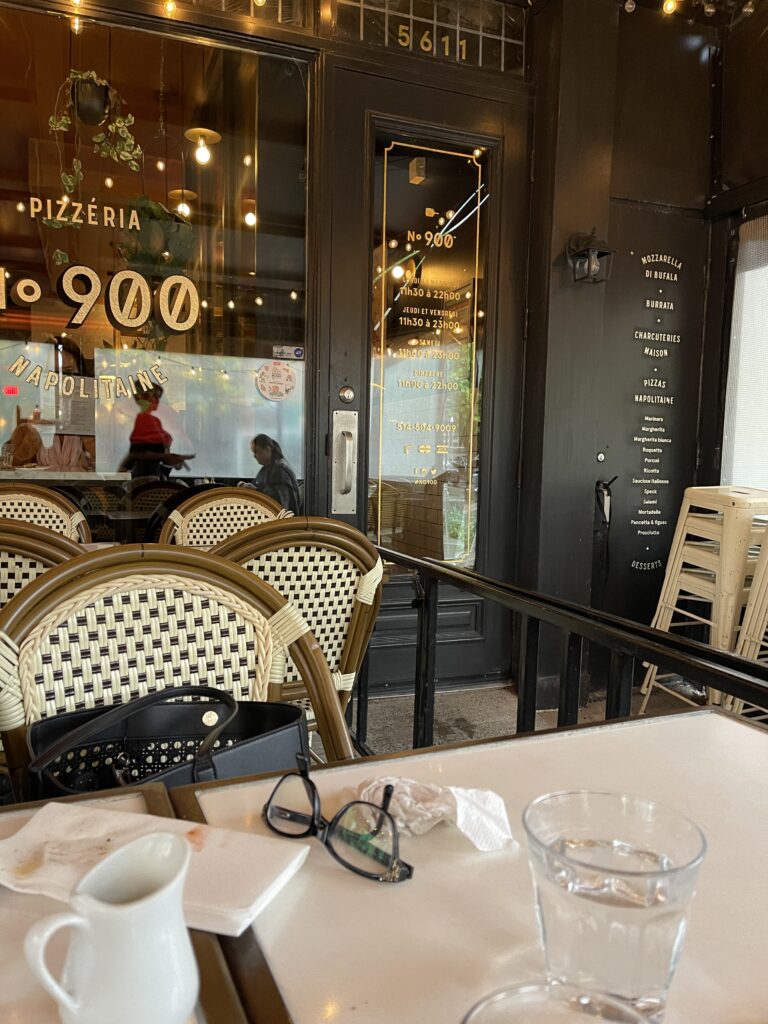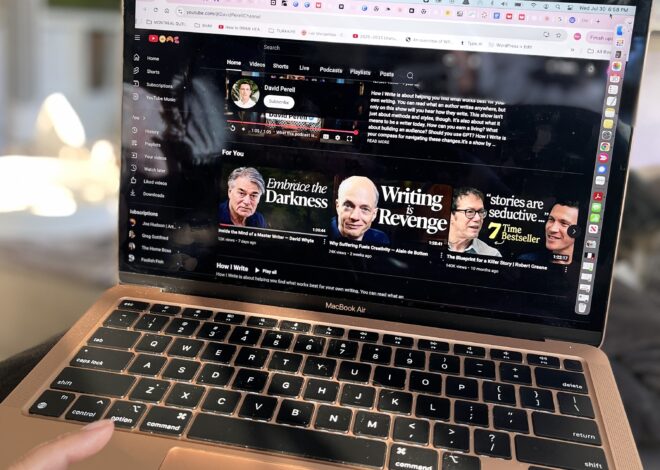
The Silent Thief: How Comparison Steals Our Joy
What do you do when your compliment collides with someone else’s scarcity mindset?
That moment revealed something I had not fully understood before. In close relationships, opening my heart to another person does not always connect me solely to their true self. It also brings me face to face with their learned patterns, their constrained perspective, and the inherited beliefs they use to measure their worth. Without realizing it, I can begin to see myself through that lens. Their distortions become a kind of mirror, and I start to absorb doubts and insecurities that were never mine to carry.
It has happened to me before. But here is one of those times that stayed with me.
A Promise of a New Friendship
She was a new friend I had met through Bumble BFF, and I was genuinely excited about getting to know her. We were already a few meetups in, and I found myself looking forward to our time together. I was alone in the city, not feeling particularly connected to my extended family, and caught in the emotional in-between of selling my recently deceased mother’s house and clearing out her belongings. This was a tender, disorienting time.
At this stage in life, meaningful connections can feel rare. And yet, something about our early conversations felt different – open, honest, and full of possibility. There was an unspoken sense that this friendship could become something special, something grounding in a moment when I quietly needed it most.

That evening, the city buzzed with its usual Montréal chaos, but where we sat, on the patio at a pizzeria on Monkland Avenue, it wa perfect. In the background, Un’Emozione Per Sempre by Eros Ramazzotti played softly, setting the mood for what I thought would be a light, meaningful night – unaware that it was quietly leading us somewhere I did not expect.
We were tucked into our own little corner of the world, lost in easy, animated conversation. She pulled out her phone to show me photos from a recent vacation. We laughed over candid moments and swapped stories behind each one. It felt natural, unforced – a moment where I was completely present.
Then I saw a photo of her that made me smile. She looked absolutely radiant. Sunlight hit her just right, her smile was effortless and genuine. There was something unmistakably beautiful about the whole image. I had to share my thought.
From that place of connection and lightness, I said what felt natural and true: “You look great in that photo. You’re beautiful!”
Her face changed instantly. The openness vanished, replaced by something guarded and distant. She looked away, her shoulders pulling inward slightly, as if protecting herself from my words rather than receiving them. There was a pause – not the comfortable kind we’d shared all evening, but the kind that creates distance.
“That’s not what I heard growing up,” she replied sharply. “My parents always said my sister was the pretty one.”
The moment shifted. An awkward feeling arose. It felt as if someone had just stepped into her body, like a possession of some sort. It didn’t make sense. Her parents were not there. Her sister was not there. It was only the two of us, yet suddenly they seemed to be in the room as well. They weren’t physically present, but they showed up in memory. The phantoms of the past had arrived uninvited and taken a seat between us. She continued talking, and then her words turned into ranting. In that moment, she became a victim. The warmth between us dissolved as she recounted her experience of feeling bullied and dismissed by her family. In that moment, she stepped into the role of victimhood and disempowerment.
While her pain was real (for her) and deeply felt, she also made a choice to bring that past into our present conversation. She invited those voices in and allowed them to take over the space, moving away from being fully present with me. It was a sudden shift – a choice to dwell in old wounds rather than in the connection we were building.
I did not expect a simple compliment to become a portal to pain. It left me stunned, caught between empathy and confusion. I wanted to honour her pain without becoming lost in it myself. I was longing for a new friendship, but it became clear that she was still living emotionally in the past.
What I had offered was a feel-good compliment. I often receive kind words from strangers (comments about my white/silver hair) and accept them with gratitude. So, I found myself confused. What came back was not a response but a reflex – an old story, worn thin from being repeated over and over. I had heard it before in passing. But, now it was in a longer dramatic format. Stories grow tired when they are told too often. I stayed in my seat, trying to ignore the sudden change in the atmosphere, but something inside me had already begun to pull away. The ease and potential of the new friendship I had felt just moments ago had vanished.
In the weeks that followed, I could feel its absence even more; though I too was holding onto something, a promise of new friendship that eventually didn’t get fulfilled. I had entered the friendship with genuine excitement about connection, believing something good was forming. But after that evening, my enthusiasm began to fade. I started having negative thoughts about myself, questioning whether I was too much, too effusive, too generous with my energy. I felt less optimistic, less connected, less like myself.
What I Didn’t Expect
What I meant as a kind and simple truth turned into something else the moment it landed. It touched a wound shaped by years of feeling less than, of measuring worth against others. She had gone somewhere else in her mind – to a place where love was scarce and beauty belonged to someone else. A place where hearing “you’re beautiful” triggered the old belief: “but not as beautiful as her.”
What I didn’t expect was that I followed her there. I hadn’t meant to, but I did. I stepped into her world – where worth was something to be calculated, and even a simple compliment became tangled in sibling comparisons.
But here’s what I understand now about the difference between empathy and absorption: Empathy allows us to feel with someone while maintaining our own emotional center. Absorption means we lose ourselves in their experience, taking on their scarcity mindset as our own. I had absorbed a framework of comparative thinking that was never mine.
This is the nature of emotional energy. It moves between people, often invisibly. And if we’re not conscious of it, we can start seeing ourselves through someone else’s lens – a lens shaped by their wounds, their limitations, their inherited beliefs about worth and beauty. We can shrink our natural generosity to accommodate someone else’s scarcity mindset, mistaking this diminishment as an act of kindness.
My Takeaway
What I understand now is this: I am allowed to protect my natural way of being. I am allowed to maintain my generous spirit. I am allowed to say, “This scarcity mindset doesn’t serve me,” and mean it.
I’ve been seeking friendship – but not just any kind. I want connection with people who share my values. People who understand that life is a gift meant to be lived in the present, not endlessly replayed through stories of old pain and constant victimhood. The right people will receive my appreciation without twisting it into their own drama, insecurities, or the echoes of their wounded self. They will recognize my genuine warmth for what it is: an offering. They will add to my natural joy, not distract from it. This is about alignment, shared energy, and shared integrity. I know those people exist. And I know they will find me when I stop dimming my light to make room for those who aren’t ready to see theirs – or mine.
My past may have conditioned me to shrink. But my future is inviting me to stay true to my natural generosity of spirit. I am still learning how to respond to that invitation.
What I Learned About Generosity and Boundaries
When someone can’t believe they’re worthy of genuine appreciation, it becomes harder for others to feel at ease in their presence. Their scarcity mindset becomes the emotional landscape, affecting everything. But I don’t have to live there. I don’t have to take on that limiting mindset.
That evening taught me something I hadn’t been ready to learn before: I am not responsible for healing another person’s relationship with themselves. I can offer genuine appreciation, but I cannot make someone believe it. I can maintain my generous spirit, but I don’t need to dim it when someone else finds it threatening to their scarcity mindset.
In some relationships, even ones that seem full of promise, may quietly ask you to shrink so someone else doesn’t feel small. They invite you to downplay your light so it doesn’t activate someone else’s comparative thinking. In my experience, at first, it feels like caring for another. Eventually, it becomes self-abandonment.
I am learning to tell the difference. And choosing self-respect.
Your energy is your life force. You get to choose how you use it.
– Caroline Myss
A Word to the Negative Thinkers
Generosity that comes from the heart is sacred. It is not limitless, nor should it be mistaken as something owed. It is not to be taken for granted or casually dismissed. I sometimes wonder if people have forgotten that presence – true, open-hearted presence – is energy. And energy is a gift.
Let me be clear: when someone offers you their full attention, their warmth, their emotional presence, they are offering something deeply human and deeply sacred.
Perhaps some do not recognize it as sacred because they have lost touch with their own. When someone is disconnected from their inner light, they often cannot see the light in others.
Take a moment to notice what happens the next time someone gives you a compliment. Where do your thoughts go? Do you receive it with gratitude, or does an old voice surface, urging you to reject it? When we brush it off, we are not just dismissing the compliment – we are, in a quiet act of self-doubt, dismissing ourselves. It is the voice of the imposter, the one that whispers we are not worthy of being seen, celebrated, or appreciated.
This reflection represents personal insights and is intended for contemplative purposes. For professional guidance regarding relationship challenges, please consult a qualified therapist or counsellor.




